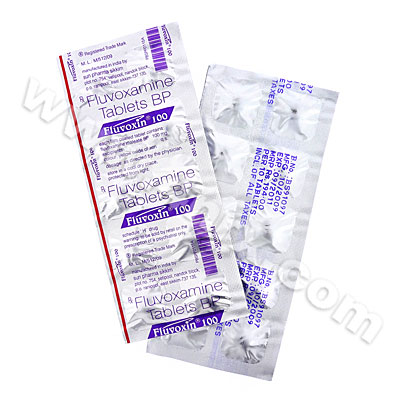 |
Home  Antidepressants Antidepressants  Fluvoxin (Fluvoxamine) Fluvoxin (Fluvoxamine) |
|
|||||||||
|
Fluvoxin (Fluvoxamine)
What is Fluvoxin (Fluvoxamine) used for? Fluvoxin (Fluvoxamine) is used to treat the symptoms of obsessive-compulsive disorder, also known as OCD, and social anxiety disorder. This drug helps to reduce the occurrence of urges to perform repeated hand-washing, checking and counting, which can affect daily living, while also helping to reduce persistent thoughts or obsessions. It works by helping to restore the balance of certain natural substances in the brain, such as serotonin, which may have become unbalanced. This drug is also used to treat bulimia and depression. How should I use Fluvoxin (Fluvoxamine)? Fluvoxin (Fluvoxamine) tablets should be taken orally. Patients are sometimes directed to take it once daily at bedtime, or twice daily, unless directed to do otherwise by their physician. It is common for physicians to start their patients out on a low dosage and to gradually increase the dosage. The exact dosage varies considerably, depending on a number of factors. Patients should always follow the instructions of their physician and never exceed the dosage prescribed to them. The maximum dosage for adults is 300mg per day, whereas for children under 11 years of age, the maximum dosage is 200mg per day. What are the side effects of Fluvoxin (Fluvoxamine)? Some side effects which may occur as a result of taking Fluvoxin (Fluvoxamine)include:
Consult your physician immediately if any of these side effects persist or worsen, or if you notice mood changes, nervousness, panic attacks, stiffness in the muscles, a fast pounding heartbeat, seizures or hallucinations. Please Note Strictly follow all instructions provided to you by your physician or pharmacist while using Fluvoxin (Fluvoxamine). Optimum and safe dosage can differ based on the patient and the condition being treated. As this medication may be unsafe for certain patients, it is essential you always inform your physician if you are pregnant or breastfeeding, as well as if you have any allergies, other illnesses, or ongoing health conditions, especially liver disease or stomach ulcers, and if you are taking any other form of medication, supplements, or herbal products. Patients who have any thoughts of suicide or self harm should consult their physician immediately. Immediately seek emergency medical care if you have any allergic or hypersensitive reaction. Common signs of a reaction include hives, swelling, skin rashes, chest pains, as well as trouble breathing or swallowing. 
|
|||||||||||||||||